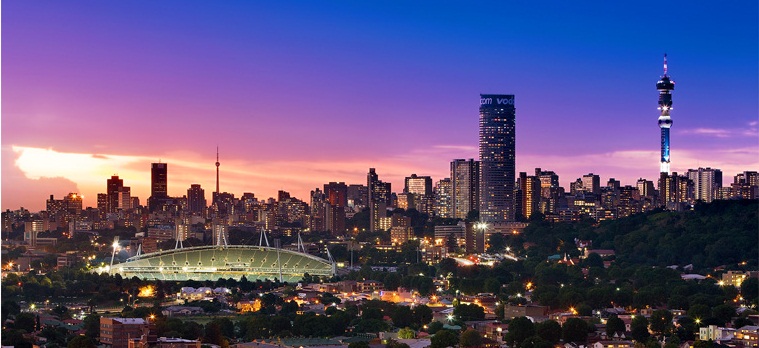Johannesburg remains the most popular destination in Africa
Gauteng Tourism the official city region’s destination marketing agency is excited and welcomes the confirmation of Johannesburg as the most visited African city in 2014 as reported by global banking giant MasterCard yesterday.
The city of gold is the anchor destination in Gauteng’s drive to build a globally competitive city region which can compete with the likes of New York, London, Melbourne, Toronto and Dubai. “We are using this popular global destination as an attract brand in our marketing and promotional drive, especially with our international and regional marketing initiatives. After immersing visitors with the city’s countless offerings we disperse them to the rest of the city region. In this way visitors receive a fulfilling all-round experience,” explained Dawn Robertson, Chief Executive Officer of Gauteng Tourism.
Joburg’s status and position as the most popular destination city among visitors to the African continent is significant for the economic prospects of the Gauteng City Region as well as the rest of the country and the continent. Africa’s economic, trade, tourism, investment and business activities starts here as Gauteng accounts for over 10% of Africa’s GDP. The province continues to house over 40 international banks and remains the headquarters of business and a place where business and investment decisions are made.
What makes this announcement special is that Jo’burg ended up ahead of Cape Town, Cairo, Nairobi and Durban for the second year running. This justifies the decision of the provincial government to use the city of Johannesburg as the anchor “attract-brand” to destination Gauteng. Robertson stressed that “We are now reaping the fruits of the associated hard work and support from all involved.”
According to the index, Johannesburg expected 4.3 million international overnight visitors in 2014, compared to last year’s 4.1m visitors. International visitors were expected to spend around R35.6 billion (US3.2bn) compared to around R34bn last year. The index ranked 132 cities in terms of the number of internal visitor arrivals and cross-border spending by these visitors in the destination cities.
Thirteen African cities were ranked in the index: Johannesburg, Cape Town, Durban, Cairo, Casablanca, Accra, Nairobi, Beira, Dakar, Kampala, Lagos, Maputo and Tunis.
Most visitors to Johannesburg travelled from London. The number of visitors from London was expected to increase by three percent from 444,000 last year to 458,000 this year. Londoners would spend around R5.1bn (US458m) which was around R223m (US20) less than 2013.
Frankfurt, Harare, Maputo and Paris were the other top cities from which visitors to Johannesburg arrived.
Cape Town was expected to receive 1.6m international visitors this year, who were likely to spend around R26bn (US2.3bn). This was a 5.5 percent increase of visitors and a 10 percent increase in spending compared to last year.
“This year’s index points to a continued strong demand for and interest in air travel, both for business and personal reasons,” explained MasterCard’s South Africa division president Mark Elliott in a recent statement.
Gauteng Tourism together with other Gauteng cities are in London for the World Travel Market to further consolidate this phenomenon growth from this market. “We are excited by the news but we are not leaving anything to chance or showing any signs of complacency. Over the past weekend we concluded a very successful Joburg Shopping Festival in association with the city of Johannesburg. This event was aimed at offering an opportunity to secure bargains and discounts just before the festive season to cross border shoppers and local and international visitors. It further cemented the city’s standing as the shopping and lifestyle capital of Africa. It’s events like these that assist us to maintain this pole position through the continued support from the people of a place born out of the pursuit of gold. The spirit, richness, celebration and ongoing search for gold remains interwoven with our natural resources, our people and their cultures”, concluded Robertson
The full report can be found on the MasterCard’s website.

